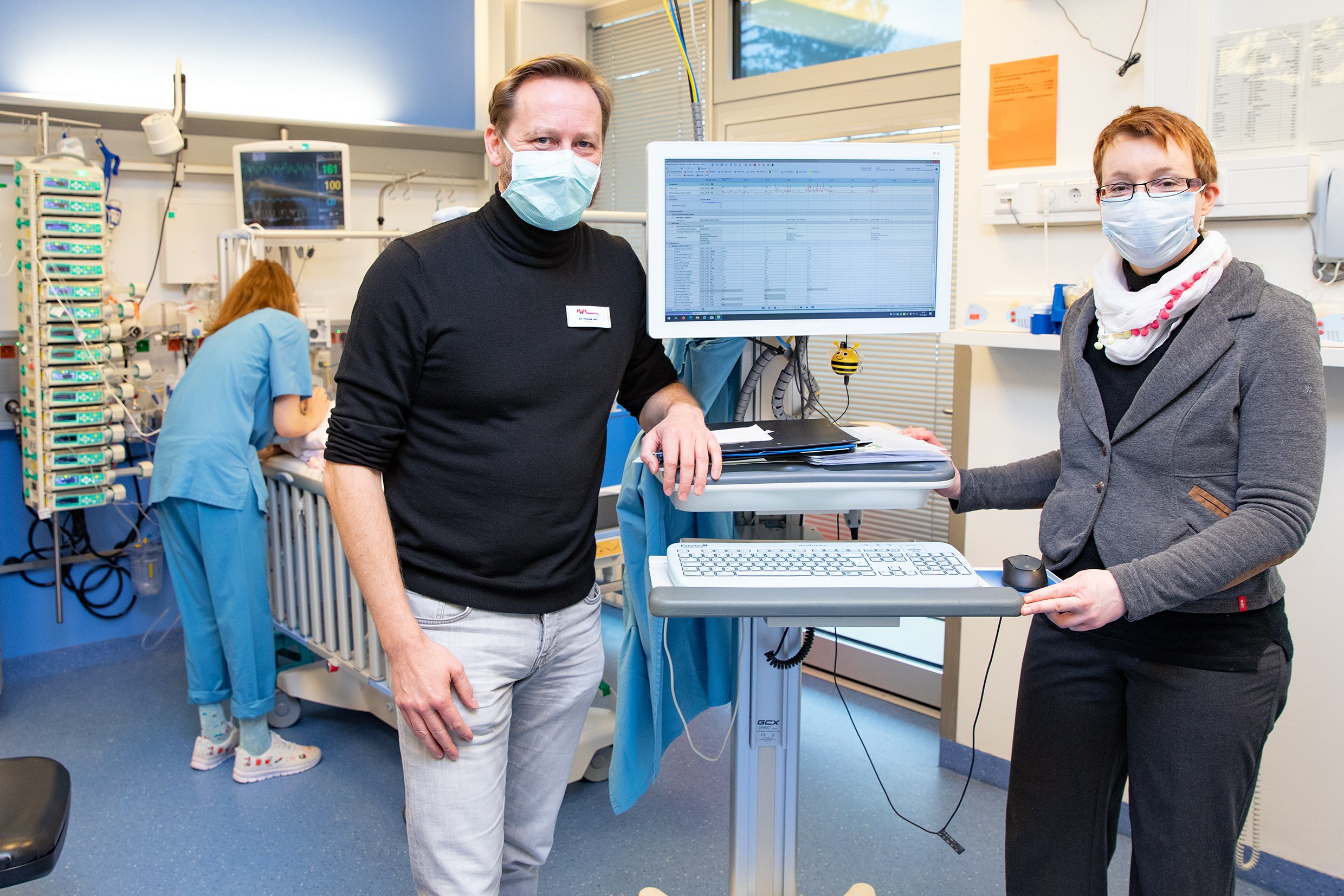Machine learning in pediatric intensive-care medicine
Lower Saxony Health Prize 2021: ELISE project convinced the jury in the category “eHealth – digital support in patient treatment, nursing and rehab”
Daniela Behrens, Lower Saxony’s Minister of Health and patron of the Health Prize, has honored three outstanding projects with the prize worth 15,000 euros. The Lower Saxony Health Prize promotes creative ideas and projects that are implemented exemplarily in the fields of disease prevention, health promotion and health care. The focus of this year's funding was on mental health, holistic physical exercise programs, and digitization or eHealth – special challenges for the health care system, especially in the second year of a pandemic.
The project ELISE – A Learning and Interoperable Smart Expert System for Paediatric Intensive Care Medicine – convinced the jury in the third award category “eHealth – ditigal support in patient treatment, nursing and rehab”. In pediatric intensive-care medicine, physicians are confronted with the problem that diseases are sometimes difficult to recognize and may also take a different course. Aimed at supporting the medical staff, the ELISE research project was initiated. The existing patient data management system already stores important patient data such as recorded vital parameters, laboratory values, medication administration and diagnoses and makes this information available at any time for treatment and nursing. ELISE is able to interpret these values, to recognize pathological conditions and inform the medical staff in critical situations. The project was initiated by the Hannover Medical School (MHH) and the Fraunhofer Institute for Toxicology and Experimental Medicine ITEM.
The Fraunhofer ITEM Project Group for Bioinformatics, headed by Prof. Lena Wiese, has developed a machine learning method for this purpose. The focus here is on the development of incremental (i.e. stepwise) and proactive learning algorithms. An explanation component is planned to be included to help users understand the results provided by the algorithms. It is based on the comparative evaluation of a large number of machine learning methods, so that a decision will not be founded on just a single method. “This comparative evaluation of different methods based on the available training data as well as flexible data pre-processing methods on the one hand are to identify the most suitable methods and on the other hand to prove the reproducibility, explainability and transparency of the algorithms,” explains Prof. Wiese.
For further information about other awardees, please refer to the website (in German language) www.gesundheitspreis-niedersachsen.de.
 Fraunhofer Institute for Toxicology and Experimental Medicine
Fraunhofer Institute for Toxicology and Experimental Medicine